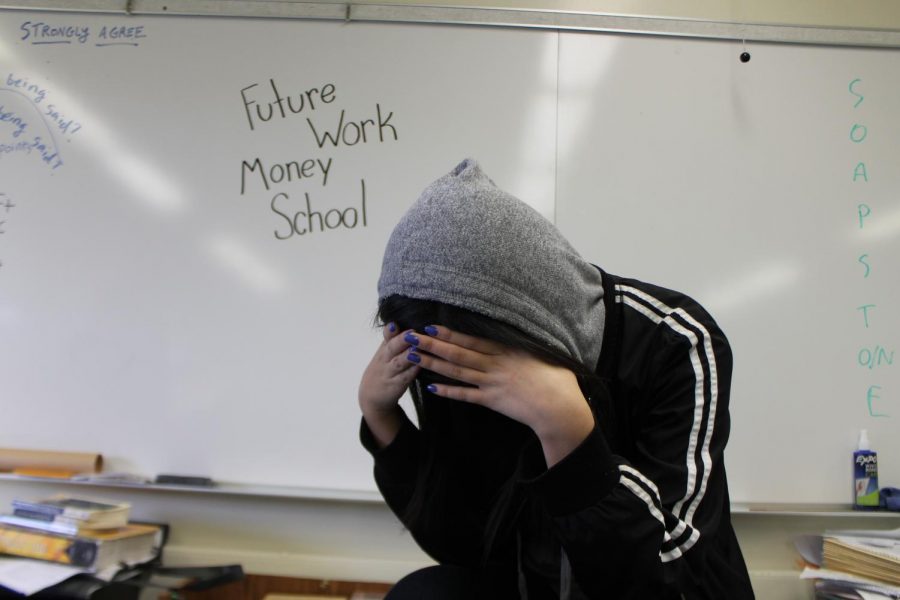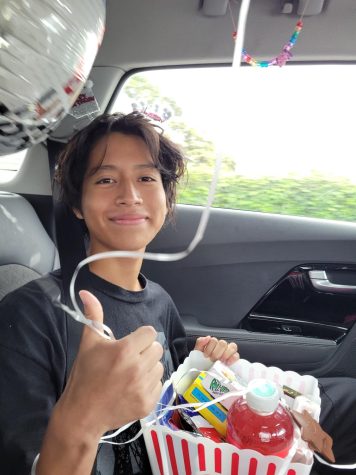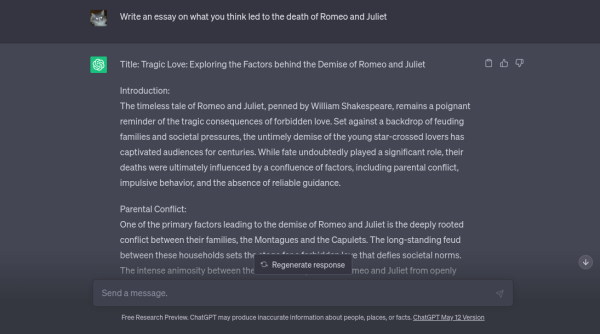The Impact of Anxiety
December 19, 2018
Have you ever been struck with anxiety unexpectedly? Like a bolt of lightning striking a tree, all the energy traveling throughout the body of the tree and leaving the tree behind with exhaustion and pain. That is what anxiety feels like for most people!
Anxiety comes in several forms, there are five different types to categorize anxiety; panic disorder, social anxiety disorder, agoraphobia, and OCD (obsessive-compulsive disorder).
Each categorized type of disorder has its own symptoms, but in general symptoms for anxiety may include; feelings of panic/fear, uneasiness, problems sleeping, cold or sweaty hands or feet, shortness of breath, heart palpitations and numbness.
Anxiety can affect anyone regardless of age or physical health. An individual does not decide they want anxiety, anxiety decides, it arrives like a thief at night and attacks your mental health.
Anxiety not only affects people as adults but can also be developed as a student. According to the Anxiety and Depression Association of America “teens and college students can easily feel anxious trying to juggle school, work, friends, and family while trying to figure out the rest of their lives.”
Here at the Islands we offer resources for any student who is struggling with anxiety or depression. In order to receive help the student who is struggling should speak up and go to their counselor, from there the counselor will refer them to the school’s therapist. The therapist will try to determine what type of anxiety is displayed and from there will recommend what is needed to stabilize it.
“It depends on the kind of anxiety, they might just need therapy, or they may need to talk to their doctor since some people need medication to stabilize their anxiety, so it depends on the individual” states Clinicas therapist, Kathleen Citrynbaun.
Other ways that CI’s students cope with their anxiety is by relying on their friends.
Alejandra Orozco, a junior, in a scenario that she were to be approached by a friend or classmate with anxiety she would say “I know it can be super difficult but keeping yourself occupied with activities that you enjoy is one of the best ways to keep yourself from developing too much anxiety and stress.”
Other students seem to approach anxiety on their own, occupying themselves with physical activity, music, rest, or their favorite hobbies.
“I usually listen to music or nap. Sometimes I decide to go on a run, running usually allows me to release some of the stress and anxiety” explains Ashley Garcia, a junior, on how she copes with anxiety on her own.
At points for many dealing with anxiety, anxiety has become dangerous, causing severe attacks. They may come out of nowhere and can happen anywhere.
Anxiety is not a mental illness, it is a behavioral condition that develops due to many factors. It cannot be cured but it can be treated with therapy and natural or medicinal treatments. The symptoms can be minimized and will help gain back control. Anxiety should not define or control anyone.









